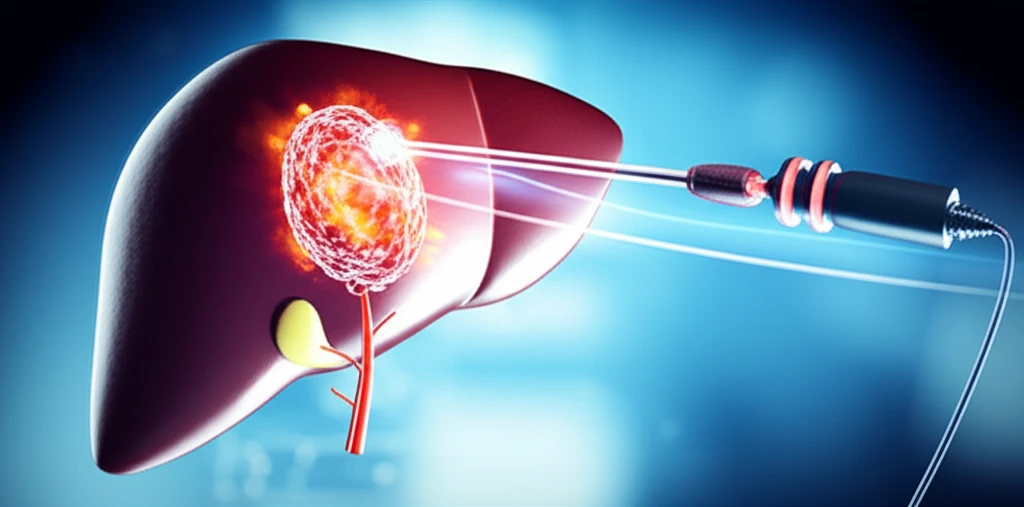
Gastric Cancer Breakthrough: New Hope for Liver Metastasis Treatment
"Groundbreaking Study Reveals Radiofrequency Ablation as a Promising Solution for Patients with Metastatic Liver Tumors of Gastric Origin"
Gastric cancer, a formidable adversary in the realm of oncology, frequently presents challenges that extend beyond its primary site. One of the most concerning complications is the spread of cancer cells to the liver, leading to metastatic liver tumors. This metastasis significantly impacts patient prognosis, underscoring the need for effective and innovative treatment strategies. Traditionally, managing liver metastases from gastric cancer has been complex, often involving systemic chemotherapy, which can have limited success and significant side effects.
However, a recent clinical trial has introduced a beacon of hope in the form of radiofrequency ablation (RFA). This minimally invasive procedure, which uses heat to destroy cancer cells, is showing promising results in the treatment of metastatic liver tumors originating from gastric cancer. This article delves into the specifics of the study, its findings, and what it means for patients and healthcare professionals alike. We will explore the details of the study and its implications for the future of cancer treatment.
This study marks a pivotal advancement in cancer treatment, offering a novel approach that could significantly improve outcomes for patients battling metastatic liver tumors of gastric origin. As we explore the details, we will highlight the potential of RFA and its role in the fight against cancer.
Understanding the Study: A Deeper Dive into the Research

The clinical trial, designed to evaluate the efficacy of radiofrequency ablation (RFA) in treating metastatic liver tumors from gastric cancer, followed a randomized clinical design. The study included 43 patients who were diagnosed with metastatic lesions in the liver, originating from gastric cancer. Patients were carefully selected, ensuring that the number of liver lesions was less than five and that the size of the lesions was smaller than five centimeters. This rigorous selection process was crucial to ensure the integrity and validity of the study's findings.
- Patient Demographics: The study included 26 males and 17 females. The mean age of the participants was 62.51 ± 12.12 years.
- No Significant Differences: The study found no significant difference in age or gender distribution between the two groups, ensuring a balanced comparison.
- Lesion Location: In 93.02% of patients, the metastasis was found in the right hepatic lobe, a common site for such tumors.
- Tumor Size: The average size of metastases was similar in both groups at the start of the study, with 2.96 ± 1.14 cm in Group A and 3.01 ± 0.96 cm in Group B.
- Treatment Outcomes: Patients in Group A (RFA + chemotherapy) showed significantly better results, with 66.6% achieving complete lesion clearance compared to Group B.
- Treatment Response: The study showed that lesions smaller than 3 cm in Group A responded better to treatment.
Looking Ahead: The Future of Gastric Cancer Treatment
The results of this clinical trial are a promising step forward in the treatment of metastatic liver tumors originating from gastric cancer. The findings emphasize the effectiveness of RFA in combination with chemotherapy, highlighting the potential of this minimally invasive procedure. As research continues, the integration of RFA into standard treatment protocols may provide a significant improvement in patient outcomes. The study underscores the importance of ongoing research and innovation in the field of oncology, offering hope for a future where cancer treatment is more effective and less invasive. The study's findings mark an important advance, opening new avenues for patient care and treatment strategies, contributing to improved survival rates and enhanced quality of life for individuals battling this challenging disease.
